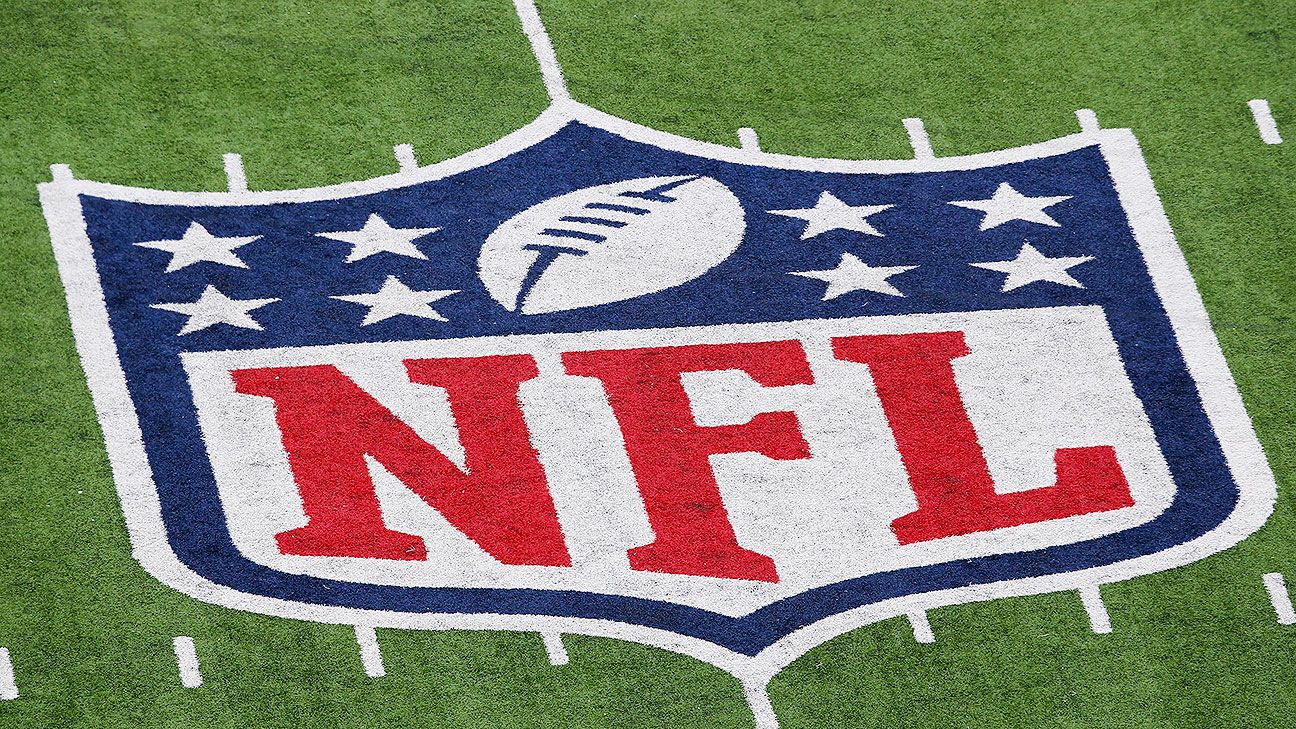Eli Lederman

Eli Lederman
ESPN Staff Writer
- Eli Lederman covers college football and recruiting for ESPN.com. He joined ESPN in 2024 after covering the University of Oklahoma for Sellout Crowd and the Tulsa World.
Jake Trotter

Jake Trotter
ESPN Senior Writer
- Jake Trotter is a senior writer at ESPN. Trotter covers college football. He also writes about other college sports, including men's and women's basketball. Trotter resides in the Cleveland area with his wife and three kids and is a fan of his hometown Oklahoma City Thunder. He covered the Cleveland Browns and NFL for ESPN for five years, moving back to college football in 2024. Previously, Trotter worked for the Middletown (Ohio) Journal, Austin American-Statesman and Oklahoman newspapers before joining ESPN in 2011. He's a 2004 graduate of Washington and Lee University. You can reach out to Trotter at [email protected] and follow him on X at @Jake_Trotter.
Sep 26, 2025, 01:00 PM ET
STILLWATER, Okla. -- Earlier this month, Oklahoma State athletic officials, regents and donors took a chartered flight to Oregon for the Cowboys' Week 2 game against the Ducks.
The trip's purpose went beyond watching the game. The group of roughly 50 visited Nike's headquarters and toured a winery founded by an Oklahoma State alum in Oregon's Willamette Valley. But OSU's power brokers also wanted to see for themselves what it would take to compete against the very best in college football's revenue-sharing era.
The game itself would reveal just how far the Cowboys had fallen in a little over a year under their legendary head coach. In a 69-3 beatdown, the Ducks handed OSU its worst loss since Nov. 8, 1907 -- days before Oklahoma gained statehood.
The charter flight back to Stillwater was somber. Nobody, at least loudly or openly, called for the head coach to go. But to some, that sentiment felt palpable.
"I think there was a faction of people that just wanted to see change," said one OSU source. "Oregon helped that for some of them. Tulsa helped them even more."
Two weeks later came the biggest gut punch. The Golden Hurricane beat the Cowboys in Stillwater for the first time since 1951, controlling the game on six days' rest while OSU came off a bye.
On Tuesday, the school finally made a move that would've been unthinkable only two years ago -- when the Cowboys played in the Big 12 title game -- but lately had seemed inevitable following 11 straight losses to FBS opponents.
Three games into his 21st season, OSU fired Mike Gundy.
"We all have high expectations for OSU football because of Mike Gundy," athletic director Chad Weiberg said. "Unfortunately, the results of the last year have not met the standard."
Gundy had spent 35 years at OSU. Four as a quarterback. Ten as an assistant. Twenty as head coach, with just two losing seasons -- his first and his last. In between, Gundy delivered 18 consecutive winning seasons, tying Oklahoma's Bob Stoops for fifth-most among FBS coaches since 1978, behind only Bobby Bowden, Frank Beamer, Mack Brown and Tom Osborne.
When OU and Texas bolted for the SEC ahead of the 2024 season, OSU seemed poised to rule a weaker Big 12. Instead, the Cowboys went 0-9 in league play last fall, culminating with a 52-0 loss at Colorado.
By the end of it, then-board chair Jimmy Harrel led an unsuccessful push to have Gundy fired last December, according to multiple OSU sources. The winningest coach in school history still had enough support to weather one bad season.
But that backing quickly dried up during the Oregon and Tulsa debacles. As one school source put it, if the Cowboys were going to get the outside financial support necessary to compete at the top of the sport, they had to make a change.
"We're not the only school trying to win football games," Weiberg said. "We've got to continue to step up and compete at the highest level if we want to win at the highest level."
Interviews with several program sources recounted the week that resulted in one of the most pivotal decisions in school history -- and why the coach who turned OSU into a perennial winner couldn't hang on to his job any longer.
IN THE 104 seasons before Gundy took over in 2005, OSU reached double-digit wins three times. In two decades, Gundy led the Cowboys to eight 10-win seasons, turning OSU into a consistent winner and unapologetically putting the Cowboys on the map nationally at the same time.
He grew a mullet. He danced down to the floor in the locker room after big wins. And he delivered one of the most quotable lines in college football history -- "I'm a man! I'm 40!"
Unlike OU and Texas, Gundy rarely landed top-25 recruiting classes.
But the Cowboys managed to compete with the Big 12 bluebloods by unearthing hidden gems, who later developed into standouts with the help of Rob Glass, one of the country's most respected strength and conditioning coaches. Justin Blackmon and James Washington both arrived as two-star recruits. They each left with the Biletnikoff Award, given to college football's most outstanding receiver.
"That's always been our secret sauce," said one program source. "We were really good at evaluating talent. Then you get them in with Rob Glass, and all of a sudden your two- or three-star guy becomes a four- or five-star player."
In 2011, with that blueprint, OSU won its first outright conference title since the World War II era and finished third in the BCS rankings, narrowly missing out on reaching the national title game.
A decade later, the Cowboys came up just short at the goal line against Baylor in the Big 12 championship. With another yard, the Pokes likely would've advanced to the four-team College Football Playoff.
But OSU's formula for success began to fray in college football's money era. The kinds of players OSU previously developed began leaving for bigger paydays elsewhere.
For many years, the Cowboys boasted one of the biggest megadonors in college football history: Oil tycoon T. Boone Pickens, who famously bankrolled OSU's facilities with billions and financed the football stadium now bearing his name. But Pickens died in 2019, just before paying players became paramount and the decisive competitive edge.
Team sources said OSU spent just $7 million on its roster last season -- $13 million less than Ohio State spent on the Buckeyes' 2024 national championship team.
Money also intensified tension within the program. A week before the 2024 opener last August, Gundy complained about players asking for more money just before the season.
"Tell your agent to quit calling us," he said then. "It's non-negotiable now."
Multiple OSU sources said that frustration was primarily directed at returning starting quarterback Alan Bowman and his representation.
After Bowman completed just 8 of 22 passes with an interception before halftime against Utah in Week 4, the seventh-year senior was benched for the second half of OSU's Big 12-opening loss. The move, and the defeat, set the tone for what would ultimately become the worst season of Gundy's career.
"It's just amazing how quickly we slid down," said an OSU source. "We really went into the [new] Big 12 thinking we'd be the leader of the pack, and it didn't work that way. And I think Coach Gundy would admit he was late to the NIL game."
Earlier in his tenure, Gundy had led OSU to improbable turnarounds following ugly early-season losses.
After falling to Central Michigan on a Hail Mary in 2016, the Cowboys rebounded to finish with 10 wins. In 2023, OSU bounced back from a dismal 33-7 loss to South Alabama to reach the Big 12 championship game as Gundy cruised to Big 12 Coach of the Year for a second time in three seasons.
But Gundy couldn't orchestrate such a turnaround last year. In early November, after six straight losses, he created a local firestorm by suggesting negative fans "can't pay their own bills."
By December, after he fired his entire coaching staff, it was unclear if Gundy himself would return this fall. On Dec. 7, he reached an agreement with the regents to take a $1 million pay cut that went toward NIL; he also accepted a reduced buyout.
OSU sources pointed out that the December drama severely limited the pool of coordinators willing to come to Stillwater amid so much uncertainty.
The Cowboys badly needed a rising play-calling star, like in 2010, when Gundy turned things over to Dana Holgorsen, who transformed OSU's offense and laid the foundation for the Big 12 title attack that Todd Monken (now the Baltimore Ravens' offensive coordinator) led the next year.
OSU also needed its next Jim Knowles, a 2025 version of the coordinator who whipped the Cowboys into a defensive stalwart by 2021, when they nearly made the playoff. (Knowles coordinated Ohio State's top-ranked defense last year and is now at Penn State).
Instead, Gundy settled for Doug Meacham and Todd Grantham -- Meacham was the inside receivers coach at TCU; Grantham had been freshly demoted from coaching defensive line to an advisory role with the New Orleans Saints.
Gundy also gave Meacham and Grantham full authority to hire their own assistants -- effectively isolating himself inside the program he built.
The Cowboys increased their roster salary for the 2025 season to $16 million, according to team sources. What followed was a massive roster overhaul. More than 60 newcomers arrived - and 35 didn't show up until June. Of the program's 38 transfer additions, only eight started against Tulsa on Sept. 19.
"You can't build a football team [and have immediate success] that way," said one OSU source.
Expectations may not have been high coming in, but injuries rendered any chance for a fast start impossible.
Starting quarterback Hauss Hejny, a TCU transfer expected to lead the offense, broke his left foot in the opener against UT Martin. A week later, left tackle Markell Samuel aggravated a stress fracture during the team's walkthrough in Oregon and was sidelined, too.
OSU's beleaguered offense went three-and-out or turned the ball over on 10 of its first 12 drives against the Ducks. Against Tulsa, the Cowboys managed only a field goal through three quarters.
"With Oregon, you could say, well, they might be the No. 1 team in the country," said an OSU source. "But losing to [Tulsa] for the first time in 74 years at home, I knew it wouldn't be good - and it wasn't."
ON MONDAY, THREE days after the Tulsa loss, Gundy held his normal weekly press conference. He said he didn't want the 2025 season to be his final one at OSU and added he still had "the same amount of energy" as his first day on the job.
On Tuesday morning, Gundy held a staff meeting. He told his assistants to simplify the schemes so the players could think less and play faster. He suggested playing more music in practice to bolster enthusiasm. He wanted the players to celebrate more. He even tasked coaches to encourage specific transfer newcomers.
An hour or so later, Weiberg visited Gundy's office to tell him he'd been fired. The concept of Gundy leading the Cowboys for the remainder of the season was never discussed.
"We all know he had a propensity for being unpredictable when he had the job," a program source said. "What would that have looked like for the next nine games without it?"
The timing of the announcement -- four days after the Tulsa loss and one day after his Monday press conference -- angered many former OSU players, who found it disrespectful.
"Total bulls---," said one.
Program sources, describing Weiberg's meeting with Gundy as friendly, noted Gundy never inquired about timing. Still, many found the timetable curious if not puzzling.
"Everybody is just lost around here," one OSU athletics source admitted on the day of Gundy's firing, "trying to figure out what's about to happen next."
During the first decade-plus of Gundy's tenure, OSU had a clear, entrenched power structure -- with Burns Hargis as president, Mike Holder as athletic director and Pickens as primary donor. Gundy often butted heads with Holder and Pickens. But in the end, they always worked out their differences.
Lately, OSU's power structure has been murky. Weiberg has been working without a signed contract. President Kayse Shrum, one of Gundy's biggest backers, who succeeded Hargis, resigned in February.
The regents are also mostly new, with Oklahoma Gov. Kevin Stitt, an OSU grad whose term is up in 2026, having appointed the entire board.
Athletic department sources attributed the delay in firing Gundy to logistics. Because of conflicting schedules, the school couldn't get new president Jim Hess and the regents together until Monday to formalize the decision (though many within the athletic department wondered what OSU's leadership did all weekend that prevented them from meeting earlier).
After Weiberg delivered him the news on Tuesday, Gundy went to the weight room to find Glass, his longtime confidante. But an OSU administrator had already summoned Glass upstairs to meet Weiberg and get the update.
Players trickled in for a previously scheduled afternoon meeting, only to learn over social media that Gundy had been fired. The OSU coaching staff found out the same way.
Cale Gundy, Mike's brother and a former OU quarterback and assistant coach, was riding a John Deere mower cutting their father's grass in Midwest City, Oklahoma, where the Gundy brothers once starred in high school. Cale saw his dad walk out of the house with a suspicious grin. He knew then something had happened to Mike.
"It had been on my mind 24 hours a day," said Cale, whose son, KC, is a quality control assistant at OSU. "Dad said, 'Well, they fired your brother.'"
Weiberg met with the players, informing them his door was open if they had questions. He also let them know that Meacham, an OSU alum, would be the interim head coach.
The decision to fire Gundy triggered a 30-day window for players to leave via the transfer portal. It's already caused fallout on the recruiting trail. Four-star, in-state running back recruit Kaydin Jones pulled his commitment from OSU. A number of others, including three-star quarterback Kase Evans, have followed suit.
"It'll be in disarray like crazy," said one source close to the team. "It's going to be a mess the rest of the year."
As Weiberg addressed the media to explain the firing, Gundy and his wife, Kristen, visited Stillwater High School, where their son, Gage, coaches quarterbacks. After the practice, Gundy briefly chatted with Stillwater offensive coordinator Charlie Johnson, a former OSU offensive lineman who started 115 games in the NFL (Gundy watched Stillwater's practice again on Thursday from the stands with his dogs).
The firing never came up. But Johnson could see the pain in his eyes.
"I think it's a slap in the face to do it when they did it. I don't think that it showed Coach Gundy the respect that he deserves," Johnson said. "That's just not the way that that should happen to somebody that's meant so much to the program, to the school, to the kids."
Before Gundy and Kristen went to dinner in downtown Stillwater -- their first fall date night in ages -- they swung by OSU's indoor facility, where the Cowboys had just finished practice.
Gundy addressed the players. He challenged them to come together, to play for one another and to keep fighting. He told them they could beat Baylor on Saturday and believed they would soon turn their season around. He also reminded them that the OSU program was bigger than any one person, including him.
"Then it ended with a lot of hugging," one assistant said, "and a lot of crying.
"It was Coach Gundy at his finest moment."
WEIBERG VOWED TUESDAY to find a coach who would bring winning back to Stillwater.
"We've proven that we can win here," said Weiberg, who confirmed he would be leading the coaching search. "We've proven that we have a lot of support for this program. The ingredients are here. ... But there are things about the game that have changed. So I want to hear what the vision is from any of our candidates."
Weiberg also promised that the school will, in time, celebrate the man who won 170 games.
"We are forever grateful to Mike Gundy," he said.
Gundy's OSU chapter is over. But his career might not be.
"Mike wants to coach -- 100%," Cale Gundy said. "He's as fiery and passionate about coaching as ever and he wants to do it." On several occasions, Mike had tried to hire his younger brother. To this point, Cale has resisted -- he's enjoyed his post-coaching life too much.
"That's where we're different," Cale Gundy said. "But I can tell you this, and I told him this [Tuesday] -- 'If you go coach somewhere else, I'm going to go with you -- and we'll go fight like hell.'"

 2 hours ago
2
2 hours ago
2

















































